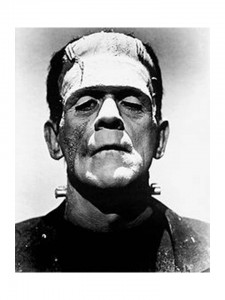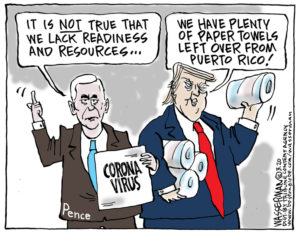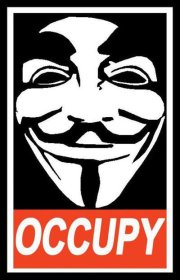By Jim Hoover
Commercial banks normally provide important services as financial intermediaries, collecting funds for safe, liquid and secure investment opportunities. Since the great depression, gambling and speculative activities were always kept separate, that is until greed was successfully infused into the process beginning in the 1980s. Since then banks have become the tool of vested interests, a means to gamble with money that is not theirs in risky, even fraudulent ventures that have become immune to criminal prosecution.
During and since the taxpayer bailout of Wall Street, major Wall Street firms have simply ignored taxpayers, subtly threatening political leaders, this while giving themselves bonuses in spite of incompetent performance.
Wall Street knows that politicians are on its side. Consequently effective regulation of banks and Wall Street is not happening. Why, because politicians depend on Wall Street contributions for their election or re-election hopes.
The Dodd-Frank Bill, signed into law over a year ago, is tailored to be weak and easily sidestepped by Wall Street for that reason. Because it contains some consumer protection features and poses a slight nuisance to Wall Street, Republicans, loyal to Wall Street moguls, voted against it.
It does protect consumers through the consumer financial protection agency, something all Republicans are striving to weaken, if not destroy. Credit card companies are constrained from the worst consumer-gouging offenses. There is oversight of derivatives regulation, with some restrictions on derivative trading.
However, the really effective banking constraints are a thing of the past, when commercial and investment banking were totally separate.
Thus we will continue to see the potential for a new round of Wall Street risk-taking similar to the derivatives fraud that nearly brought down the global economy.
All banking incentives still encourage risk-taking for short-term gain. The so-called rogue trader, Kweku Adoboli, working for the Swiss bank, UBS, defrauded the system of $2 billion through illegal trading. Pay incentives and weak regulation encouraging such recklessness are still quite common. Thus the distinction rogue does not characterize an exception, as the banking system would like you to believe.
The Banking Act of 1933, commonly known as the Glass-Steagall Act, after its legislative sponsors, provided regulation of banks that brought economic stability to our banking system, not allowing investment banking to mix with commercial banking.
A Congress growing subservient to Wall Street and President Clinton, submissive to its power, stripped all vestiges of regulation by the end of the 20th century, opening the gates to a reckless, gambling culture, that resembles Las Vegas, far afield from responsible banking.
This is where we are and where we will continue to be, waiting for the next mutation to spring out of the derivatives corpse we thought we destroyed. Frankenstein-like, the carcass is still there ready to be brought back to life. The carcass quivered and emerged as a “not-so-rogue” trader in a Switzerland bank, a mutation temporarily subdued.
But when the conditions are fertile again, with the right static from the forces of greed, the right numbing of self-serving minds, and the right gathering of clouds satiated with moist greed, the monster will live again.
Like the movies, the unimportant and the mundane figures (us) will be ripped apart while those with leading roles – actors, script writers, and producers will deftly retreat to the safe opulent heights once again.
The Monster is Not Dead!,




